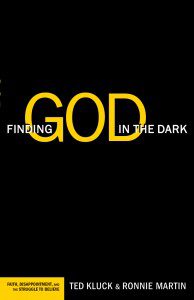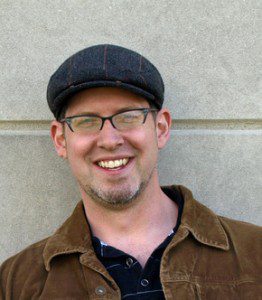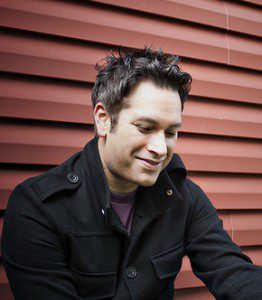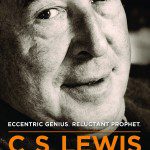 Writer Ted Kluck’s world was turned upside down after experiencing a failed adoption, where he found himself propelled into a year of doubt and disillusionment. Recording artist Ronnie Martin struggled with identity and idolatry issues before the unexpected death of his father. In a new book out this month called Finding God in the Dark: Faith, Disappointment, and the Struggle to Believe, these two young Christian artists share their stories and insights about finding God’s presence in the midst of heartache.
Writer Ted Kluck’s world was turned upside down after experiencing a failed adoption, where he found himself propelled into a year of doubt and disillusionment. Recording artist Ronnie Martin struggled with identity and idolatry issues before the unexpected death of his father. In a new book out this month called Finding God in the Dark: Faith, Disappointment, and the Struggle to Believe, these two young Christian artists share their stories and insights about finding God’s presence in the midst of heartache.
Ted and Ronnie took some time to answer a few questions about the new book, and their own personal journeys through doubt and despair.
Why is your book called Finding God in the Dark?
It was originally called When Believers Don’t Believe, but I think both titles capture the essence of the book. Ronnie and I both make our living working as artists in fields that are very up-and-down. We’re both prone to bouts of depression and self-doubt, and we’ve both gone through some hard things in our family lives. And I think we both have failed at times to trust God and see His goodness in those times. So I guess this book isn’t so much about our finding God in the dark as much as it’s about God finding and pursuing us.
Is there something specific to making your living in the arts that’s difficult?
Actually, I don’t think it’s any more or less difficult than any other career, it’s just that as artists we’re a little more comfortable being openly glum.
Who is this book for, specifically?
It’s for people in our churches who are hurting, and I think there are more of us than people realize. We’ve become very adept, as evangelicals, at faking our way through nearly everything (sadly), including going to church and writing our books. This book is an attempt to openly acknowledge that pain and sin exist, and to lead people to the cross of Christ, where we find relief and hope.
In Finding God in the Dark, you talk a lot about the difference between true humility and failure. Please explain.
For me, there were lots of times in life when I was failing—financially—in my family and in my career, and I assumed that it was making me more humble, when in fact it was just making me bitter, cynical, and wary. I was unable to be happy for others who were having success, and I was bitter about what I thought God had taken from me rather than being joyful and thankful for my salvation, forgiveness, grace, and the abundance of earthly gifts He has given me.
You have a chapter in the book about “Killing Big T.” What’s that all about?
Big T is my nickname, in certain circles, and it’s come to represent the worst part of my character. People love Big T because he’s the life of the party . . . the guy who says what people want to hear, and makes everybody laugh with his cynical stories. Big T used to check his blog comments obsessively, update his (now defunct) Facebook status constantly, and then check back for comments. I was basically a self-centered egomaniac. In order to truly love, honor, and worship Christ, I needed to be about the process of killing Big T. It was, and still is, painful, but God has given me a lot of joy in it as well.
So are you saying people should shut down their blogs, Twitters, and Facebook pages?
No, not exactly. I’m just saying that I couldn’t use those media without sinning, so I needed to get rid of them. And getting rid of them has been one of the best things I’ve ever done.
Toward the end of the book, you talk about the process of repentance and its role in experiencing the joy and peace of Christ. Tell us more.
Ronnie and I both grew up in the ’80s, which was the decade of health, wealth, and victorious Christian living, in which God was portrayed as a sort of cosmic wish-granter. So if you were a “good, clean-living kid,” it was God’s job to bless you by making all of your dreams come true. Of course, living an actual life where this didn’t happen was very disillusioning to me, and I’m guessing disillusioning to a lot of people in my generation. That disillusionment led me into a lot of bitterness, cynicism, and sin. By the time I hit my mid-thirties, I had a lot to confess.
Ted, how did the repentance happen for you?
It came as a result of hearing the Word of God preached. I was convicted of my sin, and had an almost physical reaction to it. Confession was painful and truly humbling, but the Lord was with me through His Word, through the church (elders and friends), and through my family. He gave me a peace that truly surpassed understanding, and now I have a greater love for Him. And now I’m able to give grace because I’ve so clearly received grace.
______________________
You say that God takes drastic measures for us to have hearts that are transformed by His severe mercy and sovereign grace. Can you give us an example from the Bible? From your life?
I think the apostle Paul is a great example of someone who was severely transformed by drastic measures of mercy and grace. God took him from an elite position of societal prominence and allowed him to be beaten, imprisoned, shipwrecked, tortured, and ridiculed for the sake of the gospel. Only the kind of transforming mercy and grace given by the hand of an all sovereign, all-loving God could enable Paul to say, “So we do not lose heart. Though our outer self is wasting away, our inner self is being renewed day by day. For this light momentary affliction is preparing for us an eternal weight of glory beyond all comparison” (2 Corinthians 4:16–17 ESV).
In my own life, the sudden death of my father was what the Lord used to drastically reveal His grace and mercy to me. It seems that God uses tragic events to show himself more clearly to us so that we cling to Him more dearly. The Lord used this low point in my life to expose the idols of my heart and reveal the shallowness of my faith. It’s humbling to look back and see the amount of growth I’ve experienced since that time. Although God can choose to grow and mature us through any circumstance, I can’t fathom how else He might have chosen to open my eyes. Although I’d love to have my dad with me today, I rejoice that he’s with Christ, and I’m grateful that God chose that event to broaden and deepen me.
When your dad died, you say your faith reached a critical mass. Can you say more about that?
Because my faith was somewhat thin and stagnant, I think it had reached the breaking point of what it could bear. So when my dad passed, I didn’t have the depth or maturity to withstand the weight that was being placed on it. It reached a place where God had to create a new depth, a new space in me. The old, antiquated vacuum was barely running with a bag that had never been replaced and was literally bursting at the seams. It was time to realize, repent, and find renewal in Christ.
Please expand on what you mean by the “partial sovereignty of God” and how does this play out in our lives?
I think the word sovereignty is a very intellectual term for many Christians. Most of us would say, “Of course I believe that God is in control of everything,” but when you put a microscope on the details of our lives, a very different picture emerges, which is functional unbelief. We make decisions and create realities for ourselves based on doubt and distrust more than on a firm belief in an all-loving God who controls all the intricacies of our daily lives. And this is what ultimately conforms us more to a worldly ideology than to being transformed by a gospel-centered reality. The good news is that Jesus is eager to change our thinking and our hearts.
For more on Finding God in the Dark, and these authors, visit the Patheos Book Club here.















